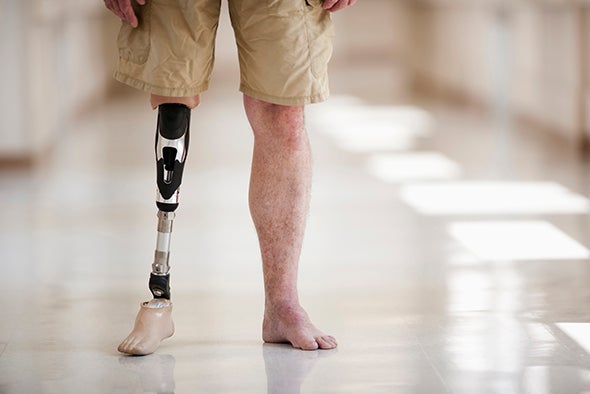There are three kinds of people on the job site. One kind of worker thinks an accident will never happen to them and others know it’s just a matter of time. No matter which kind of those two workers you were before, you are now in the third category: injured. A moment of inattention, a piece of faulty equipment or a safety procedure ignored has now cost you a limb.
While statistics show that foot and leg amputations are more common for people who suffer vascular disease or cancer, those who lose limbs in workplace accidents are more likely to lose fingers, hands or arms. There is no question that the amputation of either an upper or lower extremity is going to change your life.
The long road to recovery
If your limb was badly damaged in the accident, your doctors probably debated the chances of saving it through reconstructive surgery. However, your accident may have damaged blood vessels, nerves and tendons, or the machinery involved in the accident may have severed the limb at the site. If either of these conditions exists, amputation was likely the safest route to prevent infection.
After your accident, you probably spent a week or two in the hospital. During that time, the following may have occurred:
- Surgeons removed damaged areas and shaped the muscles to accept a prosthesis.
- Doctors prescribed pain medicines.
- Nurses monitored you for signs of infection.
- A psychiatrist may have visited you to determine your emotional state.
- You may have begun working with a physical therapist.
It takes about two months for an amputation wound to heal completely. However, you may never recover from the phantom pain. Many who lose limbs are tormented by shooting pains, itching or burning sensations in the area where the limb once was. This may be relieved if surgeons deadened your nerve endings immediately after your accident; otherwise, the brain may continue to send pain signals through the cycle it remembers.
Surround yourself with positive people
Your recovery following an amputation in a workplace accident is likely to be long and frustrating. You are certain to have good days and bad ones, and, depending on your age and overall health, you may have difficulty adapting to your prosthesis.
An important part of your healing and outlook will be your support system. Family and friends who encourage you and take an active role in your recovery may prevent you from falling into emotional lows that make it difficult to want to continue the necessary work of adaptation. Another part of a strong support system is your California attorney who will relieve you of the stress of dealing with workers’ compensation insurance claims and handle any complications that may arise during that process.



